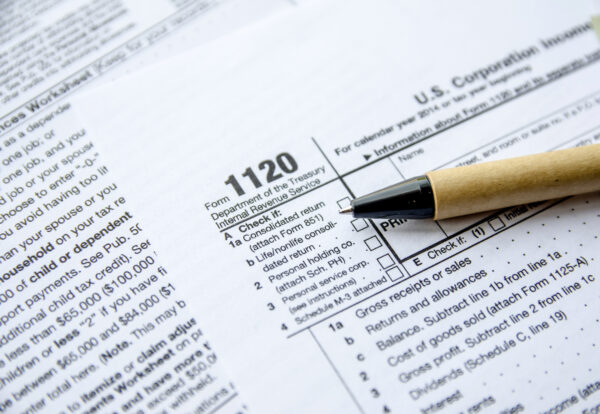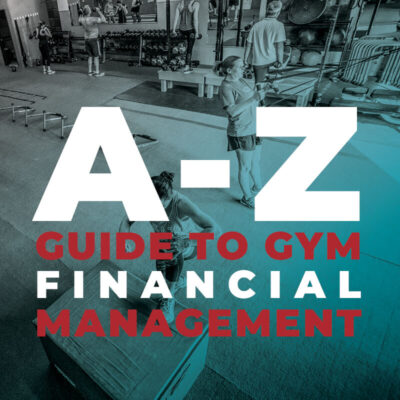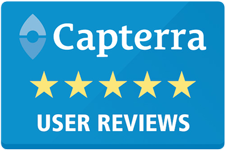3 Helpful Tax Strategies for Your Fitness Business

Taxes got you stressed out?
We understand — you didn’t start your fitness business to become a full-time accountant or a bookkeeper. But please know that tax season doesn’t have to be painful!
We’ve put together 3 tax strategies so you can save more money for your boutique fitness business come tax season and stay in compliance with the federal, state, and local government.
How To Make Tax Season Easier on Yourself

Why are taxes feared by so many small business owners?
Usually, tax season is tough due to a lack of proper planning and documentation or an incomplete understanding of everything needed when filing. You might be making taxes harder for yourself if you haven’t put an accounting system in place early on to manage your cash flow.
Like so many things in life, being proactive is the main way to avoid the sting of tax season. (It’s not a fun answer, but it’s the truth!)
As our partners at Fitness Revolution recommend to their clients, you may have to shift your thinking toward making your taxes a year-round priority, rather than a scary afterthought to be handled every year. Preparing a tax strategy in advance helps you:
- Claim every possible tax deduction
- Stay on top of bookkeeping
- Understand your tax obligations at every level of government
This way, your fitness business will be in good standing, and you can keep the maximum amount of earnings possible.
Now, let’s get into some more specific tax strategies.
Tax Strategy 1: Learn About Small Business Tax Deductions

Quick — name 10 tax deductions for fitness businesses off the top of your head!
Drawing a blank? As it turns out, there are dozens of tax deductions out there. Here are a few potential deductions that you may find relevant to your fitness business:
- Tax preparation and legal services
- Software tools like Zen Planner
- Marketing and advertising
- Startup costs up to $5,000 (technically a capital expense)
- Staff salaries and independent contractor fees
- Employee benefits, including education assistance
- Business insurance
- Loan and credit card interest
- Monthly or annual bank fees
- Real estate taxes and property rent
- Utilities like phone, internet, water, and electricity
- Office equipment and furniture
- Depreciation on leased equipment
- Continuing education related to your business
- Work travel
As you can see, these tax deductions really start to add up quickly. If you were to miss out on even one of these deductions, you’d be leaving tons of money on the table.
Seeing this list, you can see why you don’t want to wait until the end of the year to try and determine what you can or can’t deduct. Otherwise, you’ll be paying taxes on more income than you need to.
Another important thing to note: The rules regarding tax deductions for research and development expenses and depreciation on new purchases have changed in 2023. Read the Philadelphia Inquirer article for the full details. (This is information a qualified tax professional should know as well.)
Speaking Of… Do I Need a CPA To Help With Tax Deductions?
A certified public accountant can absolutely help you make sense of all these tax deductions and suggest ones you may not have considered. It’s their job!
However, even if you do hire a tax professional, it will help to go into that conversation prepared with your own documentation and well-informed questions to gut check their advice.
Watch this video from a small business owner’s perspective to consider some of the practical pros and cons of hiring a CPA to help with deductions.
Tax Strategy 2: Brush Up on Your Bookkeeping
Bookkeeping is the process of tracking all your financial transactions and maintaining the financial documentation for your business. You can do your bookkeeping yourself through Excel or a software like QuickBooks, or you can hire a professional bookkeeper to help you keep your records.
No matter which method you choose, having a well-thought-out bookkeeping system will do 2 things for your business come tax time:
1. Bookkeeping will help you save money.
Understanding your cash flow is just good business. Each month, you should be reviewing your profit and loss statement in addition to your balance sheet to keep a finger on the pulse of your finances.
A billing and management software like Zen Planner can help you run the financial reports you need for tax season and give you regular insights into your business’ financial health.
2. Bookkeeping will help you stay in compliance.
The Internal Revenue Service puts what is called the “burden of proof” on U.S.-based small business owners. Basically, it is your job to be able to prove your income and expenses. (Not to mention, good bookkeeping is the best defense against an audit.)
For more information on what the IRS expects of small business owners, check out the Small Business and Self-Employed Tax Center as well as the self-guided Small Business Virtual Tax Workshop.
Tax Strategy 3: Familiarize Yourself With Your Tax Obligations

Your tax obligations will depend on the legal structure of your fitness business. Each business type has different tax forms and filing rules, so you’ll want to do a deep dive or hire a professional to help you with this.
Take the time to understand what taxes your business is required to file and when. This will help you avoid any costly penalties.
Here’s a quick glance at business types to get you started with federal tax filing:
- Sole proprietorship: File quarterly, Form 1040 and Schedule C
- Limited liability company: File annually, forms depend on the number of owners (one or more) and what type of business you’d like to file as (sole proprietorship, partnership, or corporation — see more LLC tax info here)
- S corporation: File quarterly, Form 1120S plus Schedule K-1s given to shareholders
- C corporation: File annually, Form 1120
Remember that in addition to your personal and business taxes required by the federal government, you will also have to pay state and local taxes.
Not sure what the state and local rules are? Go directly to your state government’s website for more information on filing your taxes correctly.
Bonus Strategy: Follow the Zen Planner A-Z Financial Guide
Yup, that’s right! We have an A-Z Financial Guide to help fitness business owners like yourself get through the nitty gritty details of bookkeeping and tax filing.
Why make tax season harder on yourself? Download your financial guide today using the button below.

Original blog published January 22, 2018. Updated March 14, 2023.

I’m Coach Kelli, a devoted CrossFit gym owner with 15 years of experience managing my facility, along with owning yoga studios and wellness centers. Beyond the fitness world, I have a passion for cooking, cherish moments with my children and family, and find joy in spending time outside. Having experienced the highs and lows, I’m dedicated to leveraging my expertise to help you grow and succeed on your fitness journey.

I’m Coach Kelli, a devoted CrossFit gym owner with 15 years of experience managing my facility, along with owning yoga studios and wellness centers. Beyond the fitness world, I have a passion for cooking, cherish moments with my children and family, and find joy in spending time outside. Having experienced the highs and lows, I’m dedicated to leveraging my expertise to help you grow and succeed on your fitness journey.







